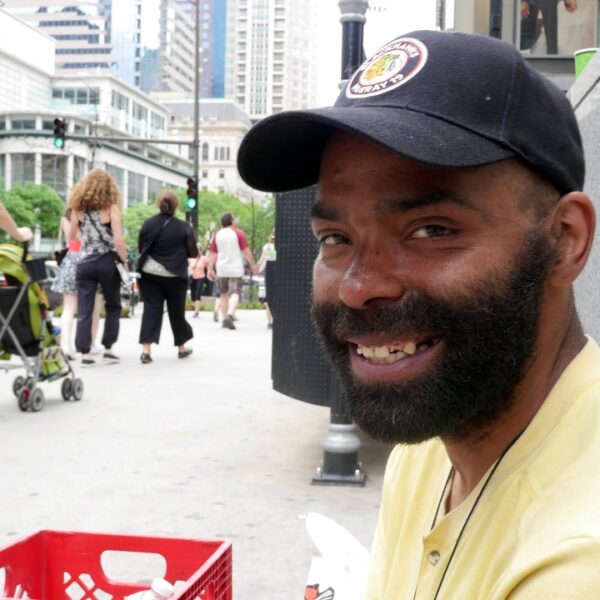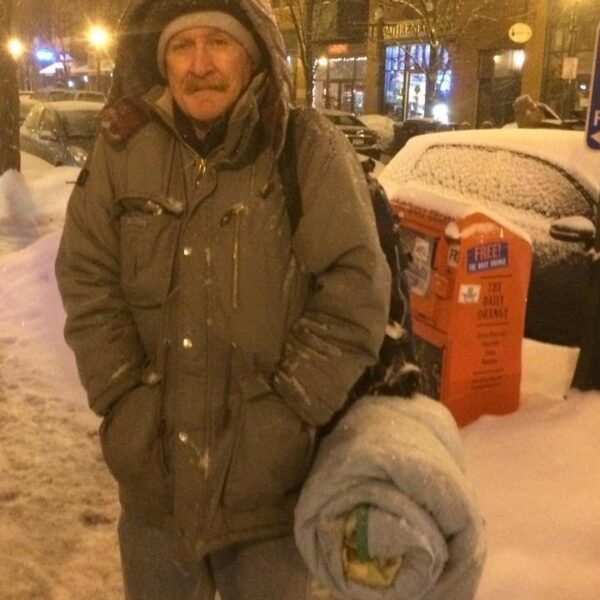The Biden Administration has launched a new initiative to end unsheltered homelessness in six places: Chicago, Dallas, Los Angeles, Phoenix, Seattle, and the State of California.
The initiative is part of Biden’s federal strategic plan to prevent and end homelessness, which seeks to reduce homelessness by 25% by 2025. It also directs agencies like the U.S. Department of Health and Human Services to provide technical assistance to communities for up to two years so they can use programs like Medicaid to cover rehousing costs.
The U.S. Interagency Council on Homelessness and its 19 federal member agencies will lead the efforts.
Housing advocates like National Low Income Housing Coalition CEO Diane Yentel applauded the move as a “meaningful, welcomed, and robust commitment by the Biden-Harris administration.”
“As our nation’s housing crisis worsens, more people are pushed into homelessness each day,” Yentel said. “Homelessness is on the rise in many communities, and every level of government must take immediate action to address this urgent, tragic, and solvable issue.”
Donald Whitehead, executive director of the National Coalition for the Homeless, added that the initiative represents “a really excellent first step.”
“It hopefully signifies the attention that the administration is paying to the issue of homelessness and also provides some unique resources,” Whitehead said.
Under the initiative, each jurisdiction will have a dedicated federal officer assigned to help streamline programs that end homelessness. Local housing navigators and outreach workers will guide the response on the ground. At the same time, federal officials will work to find areas of regulatory relief.
Chronic and Unsheltered Homelessness Are on the Rise Nationwide
The initiative was introduced at a time when rates of chronic and unsheltered homelessness are increasing across the country. Last year, the federal one-night count found more than 233,000 people were experiencing unsheltered homelessness, which represents a 3.4% increase year-over-year.
Meanwhile, another 127,000 individuals were deemed to be experiencing chronic homelessness, meaning they had been homeless for at least a year. That total represents a more than 15% climb year-over-year.
States like California have seen their chronic and unsheltered homelessness rates climb even higher.
For example, the number of people experiencing chronic homelessness in California increased by 46% from more than 41,000 in 2019 to more than 60,000 in 2022, according to federal data. The state’s rate of unsheltered homelessness also increased by more than 6.5% up to more than 115,000 people over the same time frame.
Other places like Maricopa County, Arizona, home to Phoenix, are also grappling with unique homelessness-related challenges.
For example, Phoenix is defending itself against competing lawsuits over an encampment known as The Zone, which was home to nearly 700 people at one point. At the same time, the city was facing a lawsuit filed by unhoused advocates seeking to challenge the constitutionality of unhoused sweeps.
The lawsuits were filed at a time when rates of homelessness in Maricopa County have reached a five-year high.
In 2022, the county found more than 9,000 sleeping on the streets on a single night, an increase of 19.4% since 2020. More than 5,000 people were sleeping unsheltered, and another 1,200 individuals were identified as chronically homeless.
“We must increase our capacity of shelter and transitional beds so that we can help alleviate the strain on our neighboring cities,” Mesa, Arizona mayor John Giles said. “The federal commitment through this ALL INside Initiative is a more direct way to partner with the federal government on local solutions to address homelessness in Mesa and our region.”
However, these efforts are all being threatened by Republican-led efforts to slash federal spending on affordable housing and force the country to exceed its debt limit.
In March, Republicans introduced a budget proposal that would have effectively ended rental assistance payments for 1 million households. According to a letter HUD Secretary Marcia Fudge sent to congressional leaders, it would have caused another 120,000 people exiting homelessness to lose their housing vouchers.
Republicans have also demanded that Democrats in Washington, D.C., add work requirements to Medicaid and food stamps in exchange for them voting to raise the debt ceiling.
The debt ceiling sets the maximum debt the federal government can incur. It currently stands at $31.4 trillion. While President Biden and Speaker Kevin McCarthy have reached a tentative deal, Congress must pass the bill before the U.S. begins to default on its debt as early as June 5.
How You Can Help
Now is not the time to be silent about homelessness in California or anywhere else. While blaming a single politician for today’s housing struggles is easy, the truth runs much deeper.
Poverty and homelessness are both policy choices, not personal failures. That’s why we need you to contact your officials and tell them you support legislation that:
- Streamlines the development of affordable housing
- Reduces barriers for people experiencing homelessness to enter permanent housing
- Bolsters government response to homelessness
Together, we can end homelessness.













